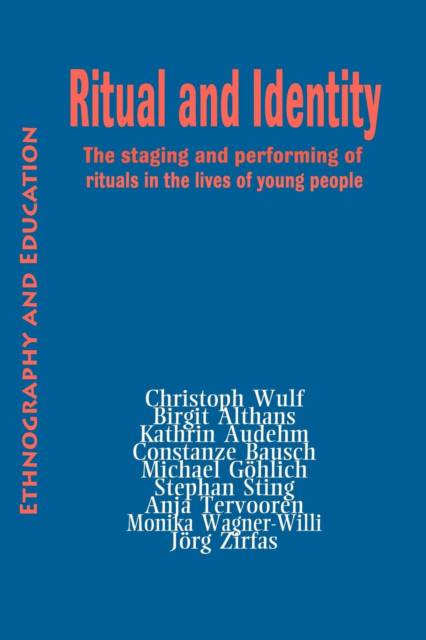
- Afhalen na 1 uur in een winkel met voorraad
- Gratis thuislevering in België vanaf € 30
- Ruim aanbod met 7 miljoen producten
- Afhalen na 1 uur in een winkel met voorraad
- Gratis thuislevering in België vanaf € 30
- Ruim aanbod met 7 miljoen producten
Zoeken
Ritual and Identity
The Staging and Performing of Rituals in the Lives of Young People
Birgit Aithans, Kathrin Audehm
€ 31,45
+ 62 punten
Omschrijving
Rituals play a central role in the development of individual and collective identity. This is particularly true for young people, who are tractable to a great extent. Rituals are productive. While they were previously made a subject of discussion under the aspects of stereotyping, rigidity and violence, this examination concentrates on productive moments of rituals that contribute to making and forming the identity of communities and individuals. In ritual processes, the body, the senses and the performative actions of all parties involved play an important role. Rituals serve the community as a medium for generating and dealing with differences, for overcoming crises and for structuring transitions. Our ethnographic study shows how social relationships are formed in performative processes of rituals and ritualisations. In this sense, the focus is on the dramaturgy and organisation of ritual interactions and their effects, on scenic-mimetic expressivity, on the performance and staging character, and on the practical knowledge of social action. Four central socialisation fields of performative ritual action are analysed: the living environment of the family, transitions in everyday school life, games children play at recess and media stagings of peer groups. Ritual action is also defined as practical mimetic knowledge, and the city is characterised as performative space.
Specificaties
Betrokkenen
- Auteur(s):
- Uitgeverij:
Inhoud
- Aantal bladzijden:
- 208
- Taal:
- Engels
- Reeks:
Eigenschappen
- Productcode (EAN):
- 9781872767130
- Verschijningsdatum:
- 23/08/2010
- Uitvoering:
- Paperback
- Formaat:
- Trade paperback (VS)
- Afmetingen:
- 152 mm x 229 mm
- Gewicht:
- 285 g

Alleen bij Standaard Boekhandel
+ 62 punten op je klantenkaart van Standaard Boekhandel
Beoordelingen
We publiceren alleen reviews die voldoen aan de voorwaarden voor reviews. Bekijk onze voorwaarden voor reviews.











